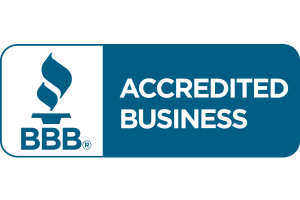Hearsay and Lender’s Evidence In Foreclosure Lawsuits
We’ve all watched courtroom dramas where the defense attorney leaps to his feet and calls out “Objection! Hearsay.”
And then the judge bangs his gavel and says “sustained,” or “overruled,” and the trial continues. After watching this, you may have understood that “hearsay” involves repeating something that someone else said.
But you may not realize that hearsay can work to a homeowner’s advantage in a foreclosure lawsuit.
In Kelsey v. Suntrust Mortgage, Inc., the lender obtained a default judgment of foreclosure. Default judgments are common when the borrower does not answer the foreclosure lawsuit. There is no trial, but the lender still must introduce certain evidence: the note and mortgage, the acceleration letter sent to the borrower, and evidence of the amount owed on the note.
And that’s where hearsay comes in. In a court proceeding, any statement that was made outside the courtroom is considered hearsay if it’s offered as proof of the statement’s truth. For example, if your friend told you that Sally stole $100, hearsay rules would prevent you from using your friend’s statement as a basis for testifying in court that Sally is a thief.
Hearsay rules don’t just apply to oral statements. They also apply to documents if a party is using a document to prove that the information in the document is true. That means that most documents are considered hearsay unless they are “authenticated” by a witness. Sometimes, the witness will testify that he or she prepared or signed the document.
In foreclosure cases, most documents are authenticated and admitted into evidence under the business records exception to the hearsay rule. A custodian of records testifies that he or she is familiar with the way records are prepared and kept by the lender, and that this document was prepared according to that ordinary business practice.
How does this help a borrower? Since mortgages are often assigned from one lender to another, lenders may have a difficult time producing a witness who has sufficient knowledge to authenticate the loan documents and payment history.
That’s what happened in the Kelsey case. The only witness was a mediation litigation specialist who said that she knew nothing about this loan, had seen the note for the first time on the day of the trial, and had only reviewed the mortgage file when she found out the case was being tried. She relied on a proposed order prepared by someone else to testify about the amount owed.
The homeowners objected to the litigation specialist’s testimony. They said she should not have been allowed to testify because she not show that she was a custodian of records or that she had personal knowledge of the documents. The trial court overruled their objection, admitted the documents into evidence, and entered a foreclosure judgment against the homeowners.
On appeal, the Florida Court of Appeal agreed with the homeowners. It ruled that the documents were hearsay, did not have the proper authentication, and should never have been allowed as evidence.
The Banks have Lawyers. You should have a Lawyer on your side.
The Neustein Law Group, PA of Aventura, FL and has convenient offices in downtown Miami, Dadeland, Fort Lauderdale, Boca Raton, West Palm Beach and throughout the state of Florida.






